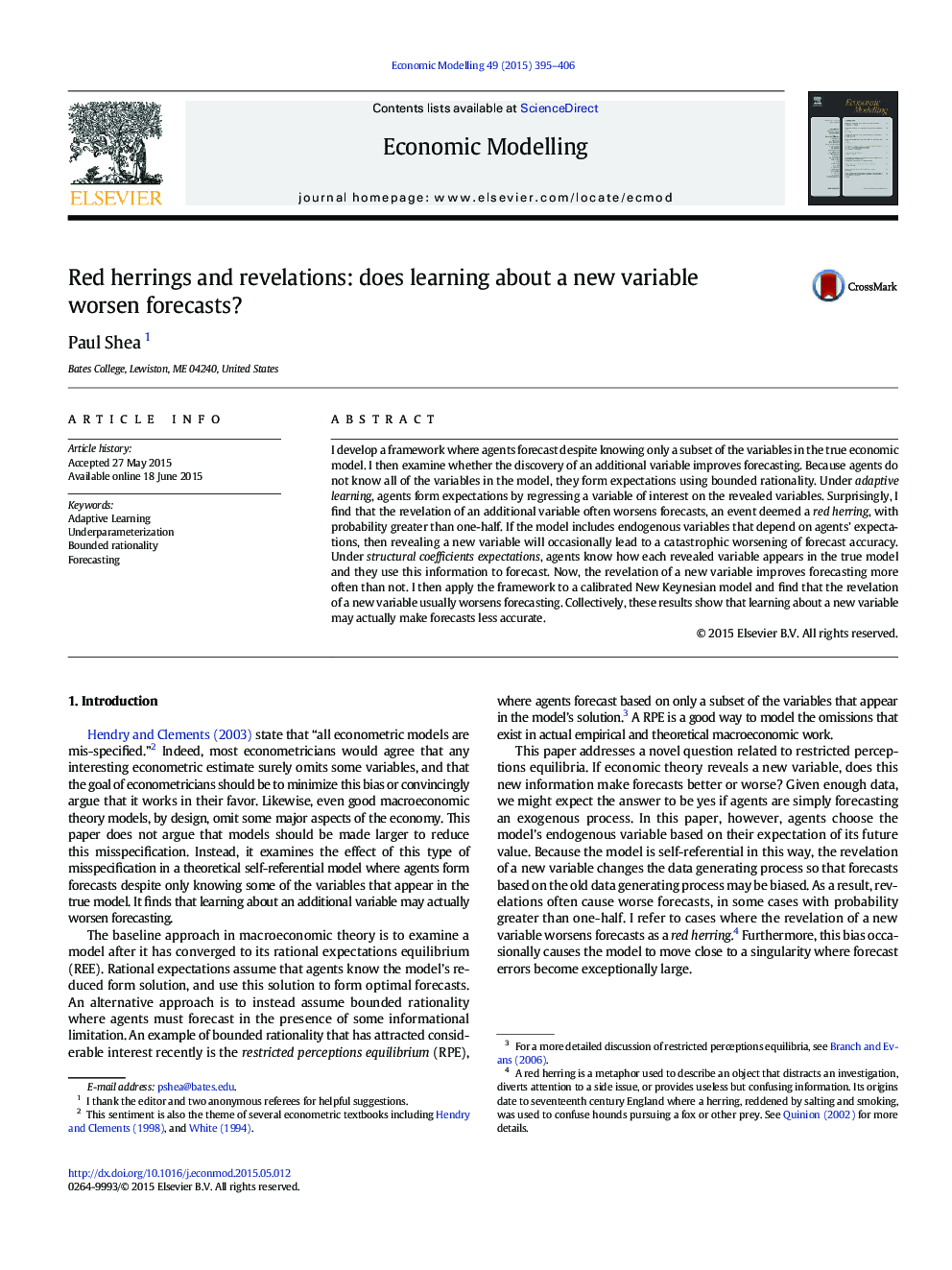| Article ID | Journal | Published Year | Pages | File Type |
|---|---|---|---|---|
| 5053842 | Economic Modelling | 2015 | 12 Pages |
Abstract
I develop a framework where agents forecast despite knowing only a subset of the variables in the true economic model. I then examine whether the discovery of an additional variable improves forecasting. Because agents do not know all of the variables in the model, they form expectations using bounded rationality. Under adaptive learning, agents form expectations by regressing a variable of interest on the revealed variables. Surprisingly, I find that the revelation of an additional variable often worsens forecasts, an event deemed a red herring, with probability greater than one-half. If the model includes endogenous variables that depend on agents' expectations, then revealing a new variable will occasionally lead to a catastrophic worsening of forecast accuracy. Under structural coefficients expectations, agents know how each revealed variable appears in the true model and they use this information to forecast. Now, the revelation of a new variable improves forecasting more often than not. I then apply the framework to a calibrated New Keynesian model and find that the revelation of a new variable usually worsens forecasting. Collectively, these results show that learning about a new variable may actually make forecasts less accurate.
Related Topics
Social Sciences and Humanities
Economics, Econometrics and Finance
Economics and Econometrics
Authors
Paul Shea,
